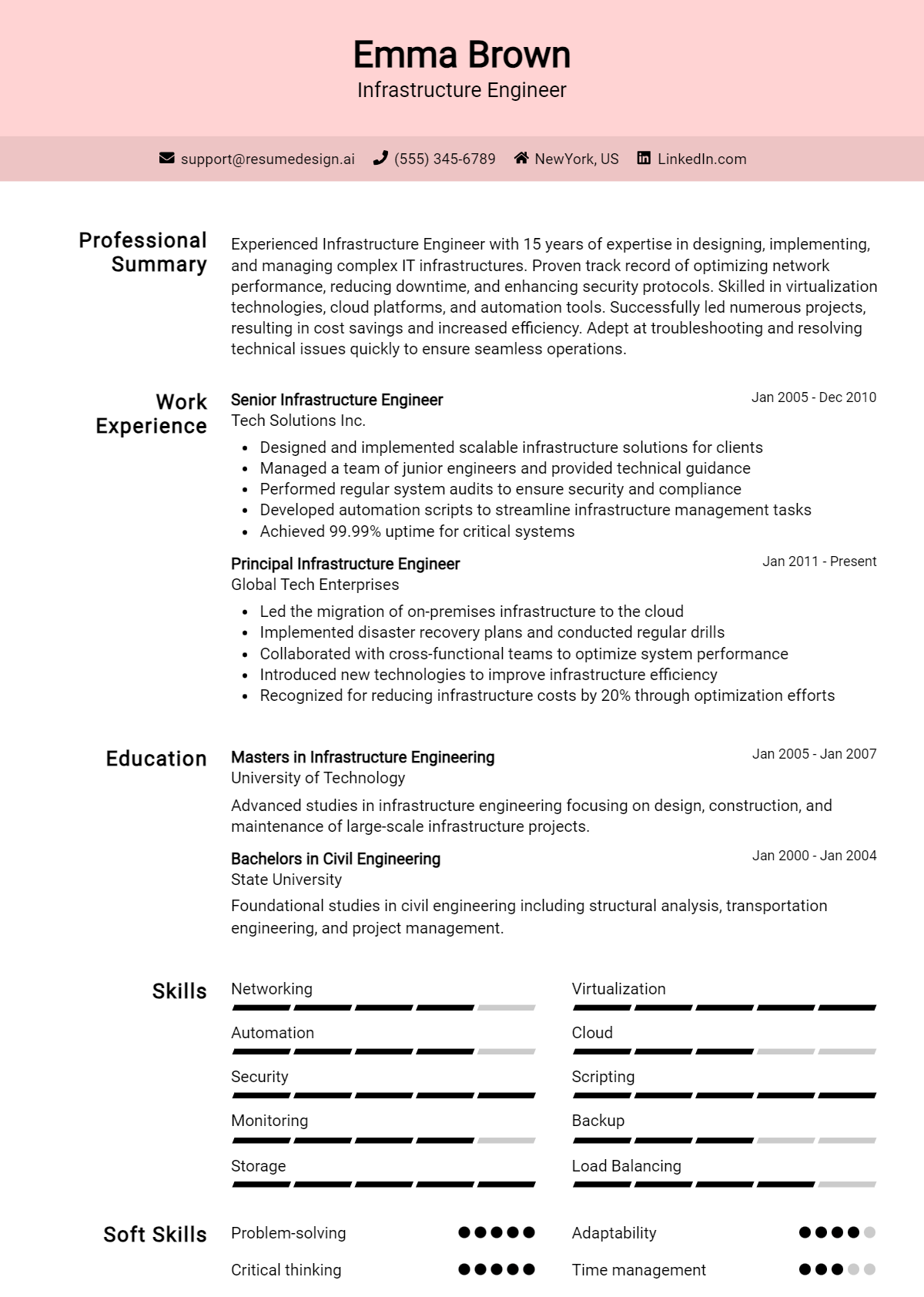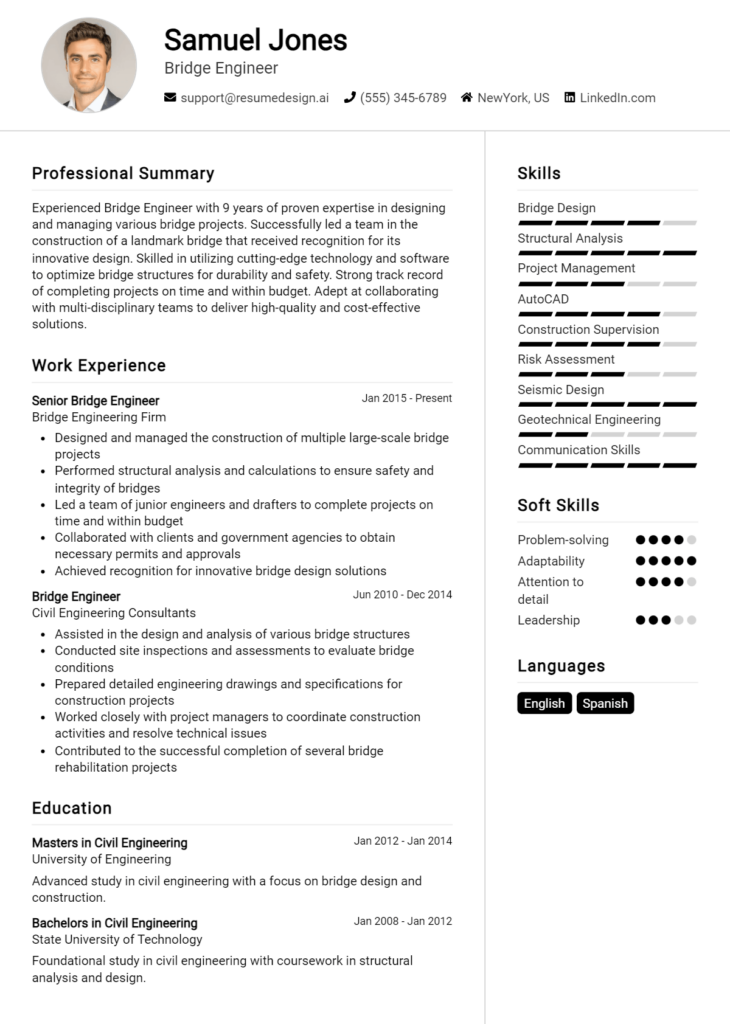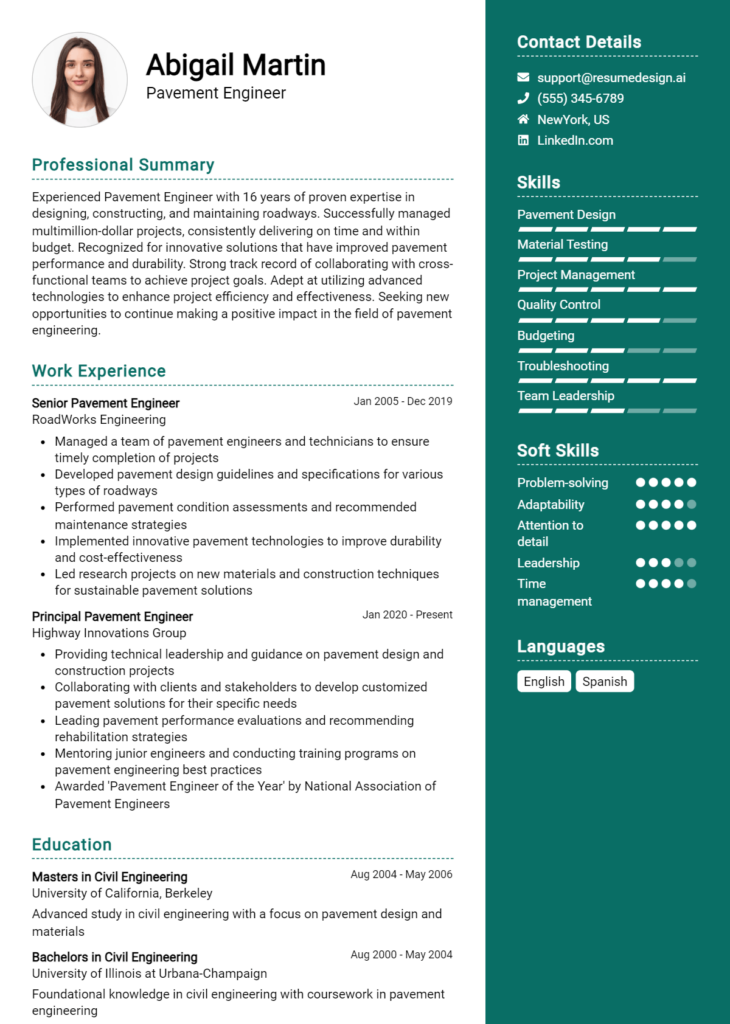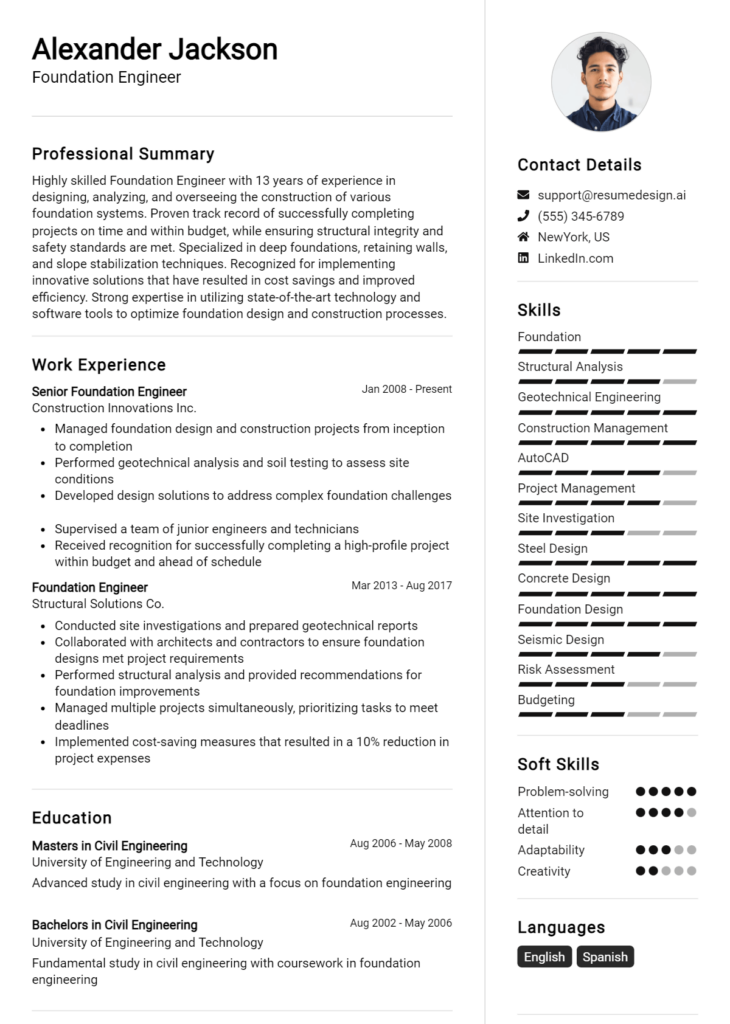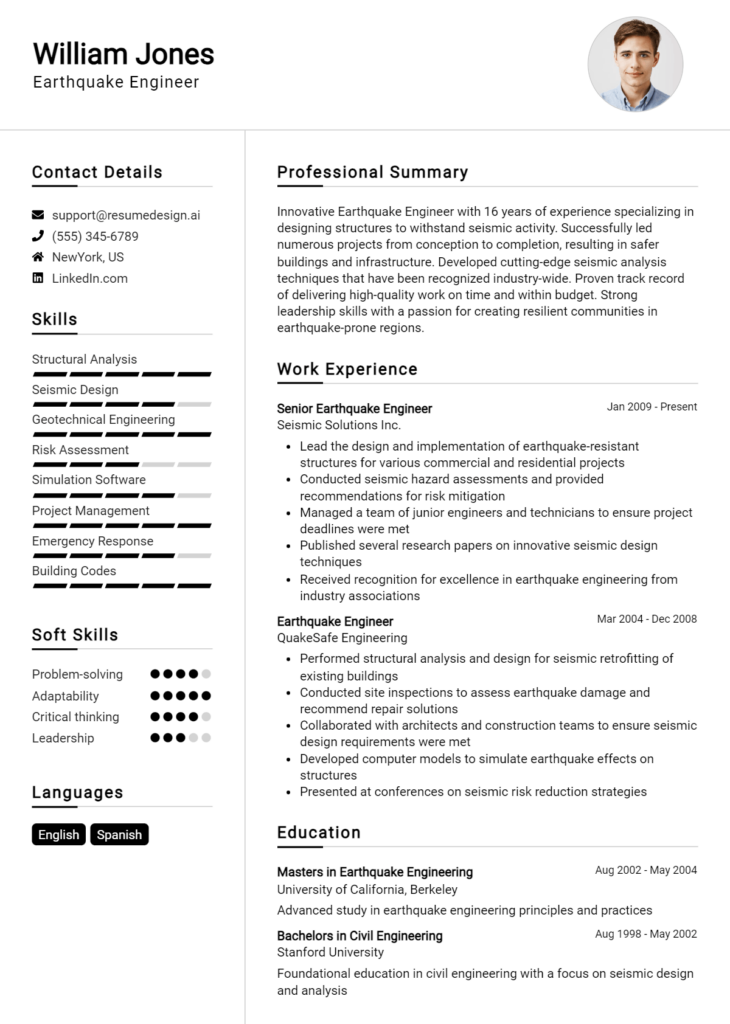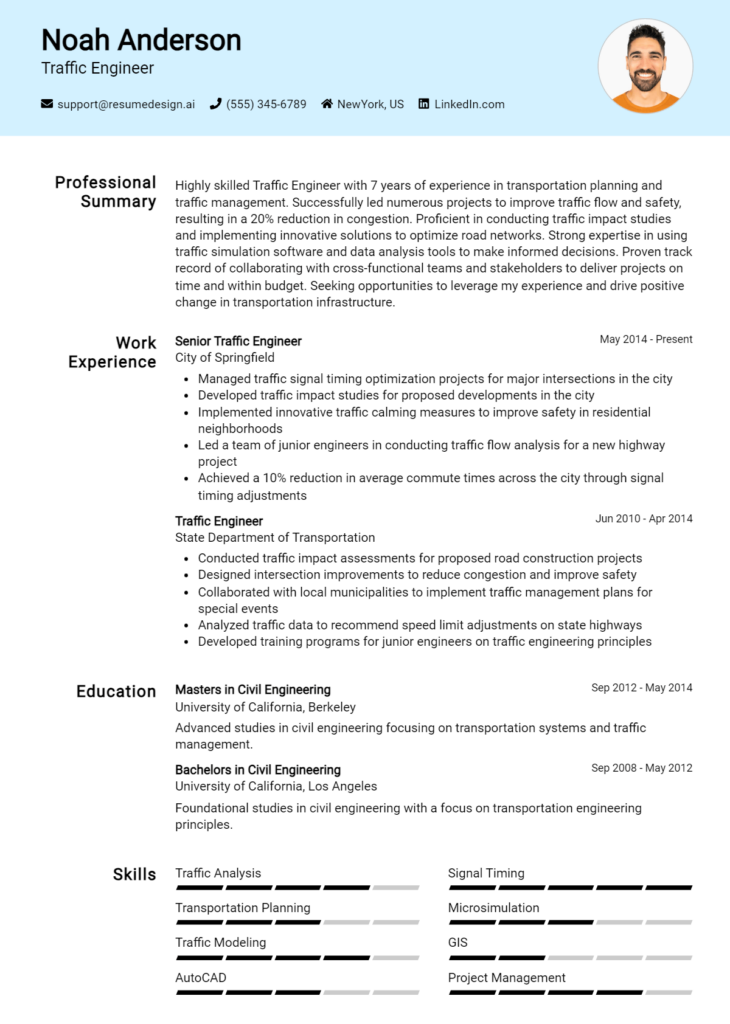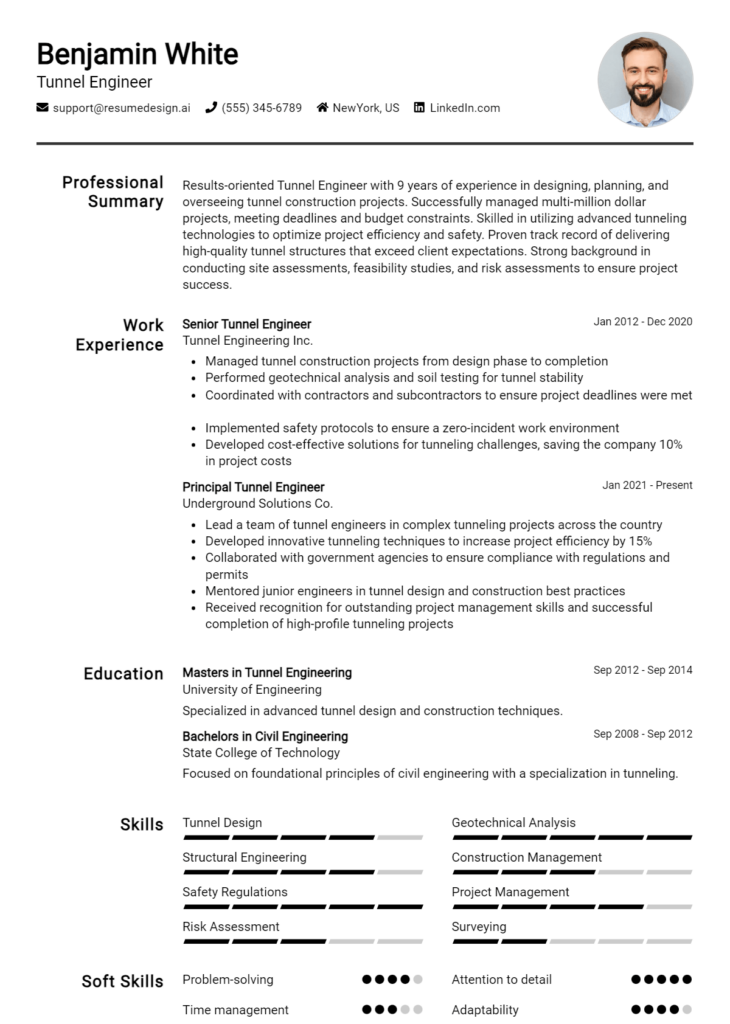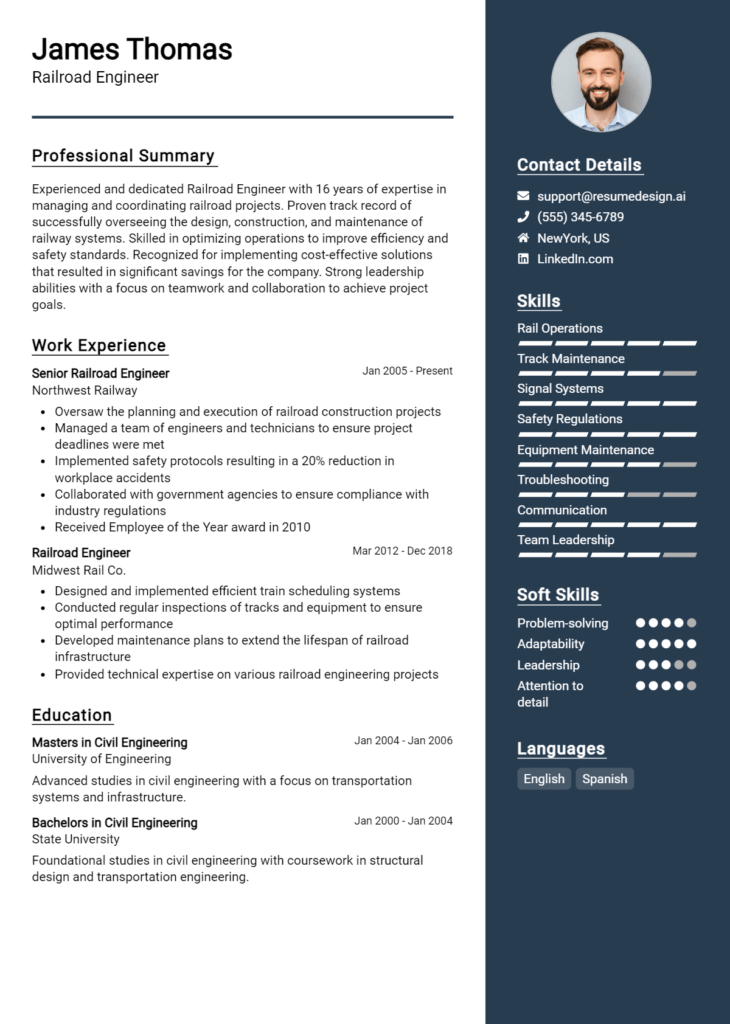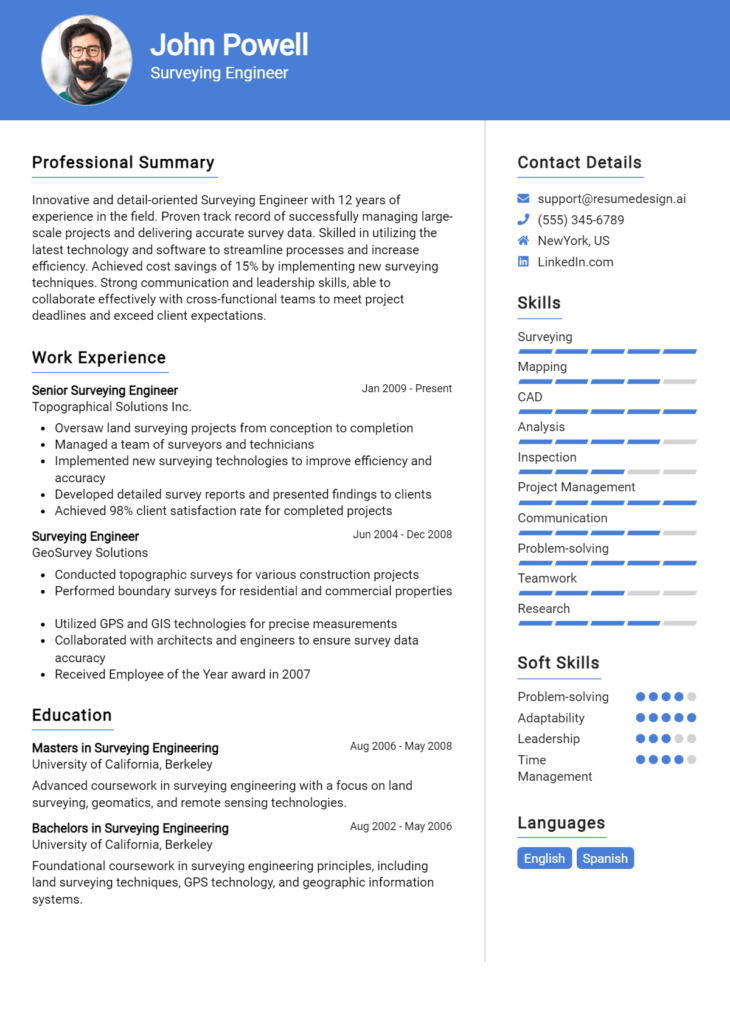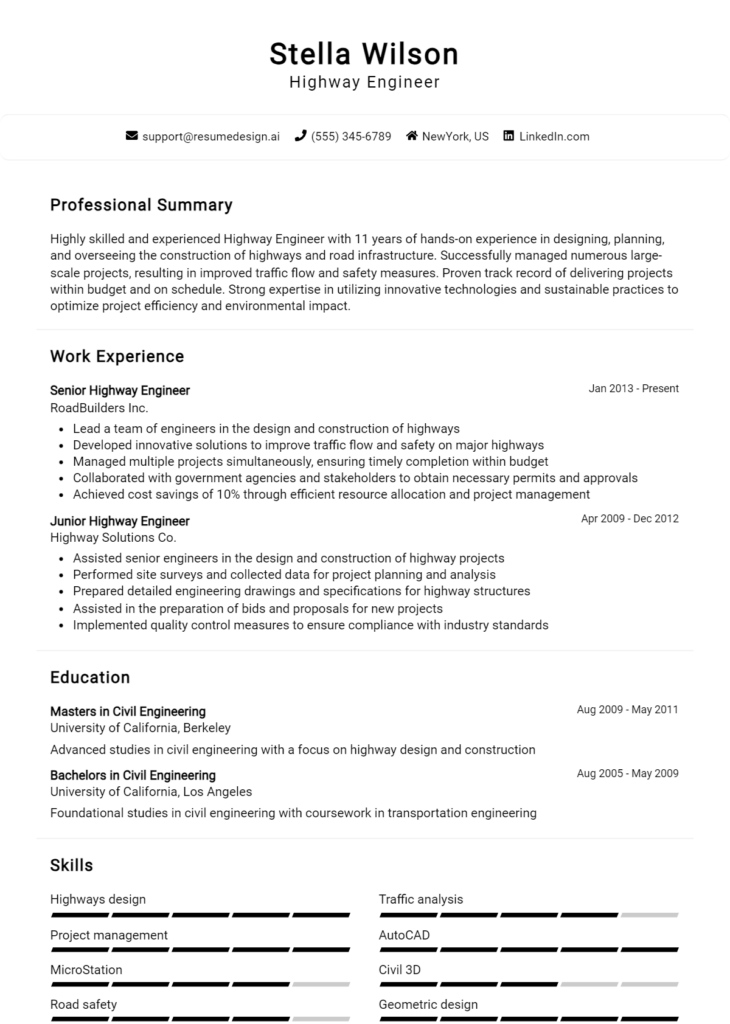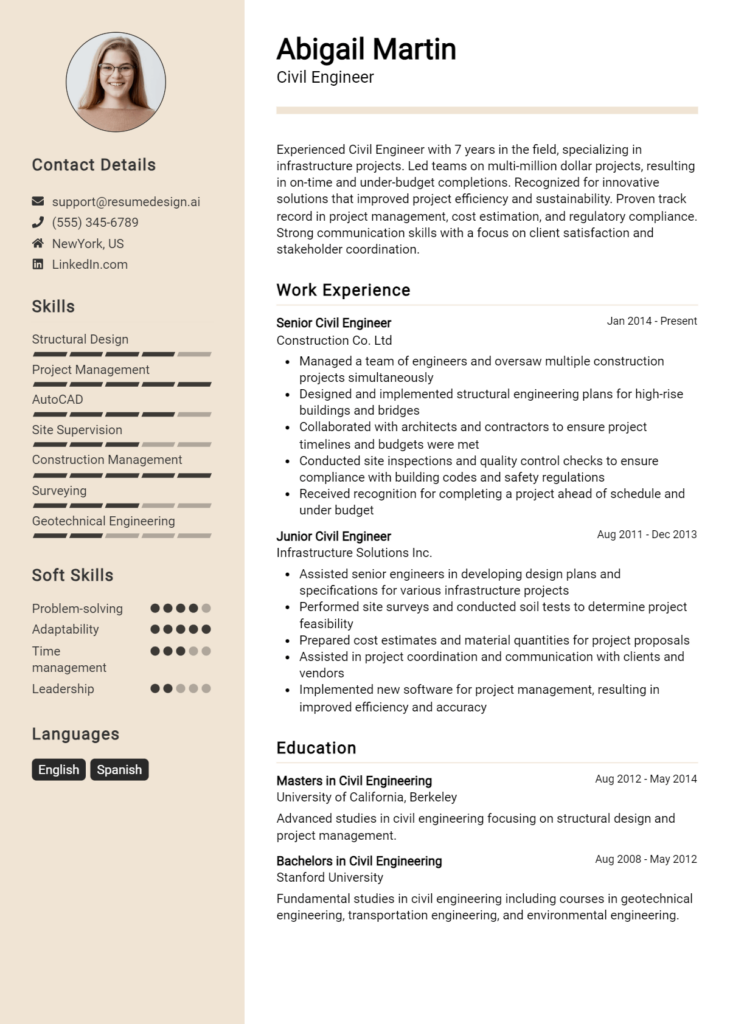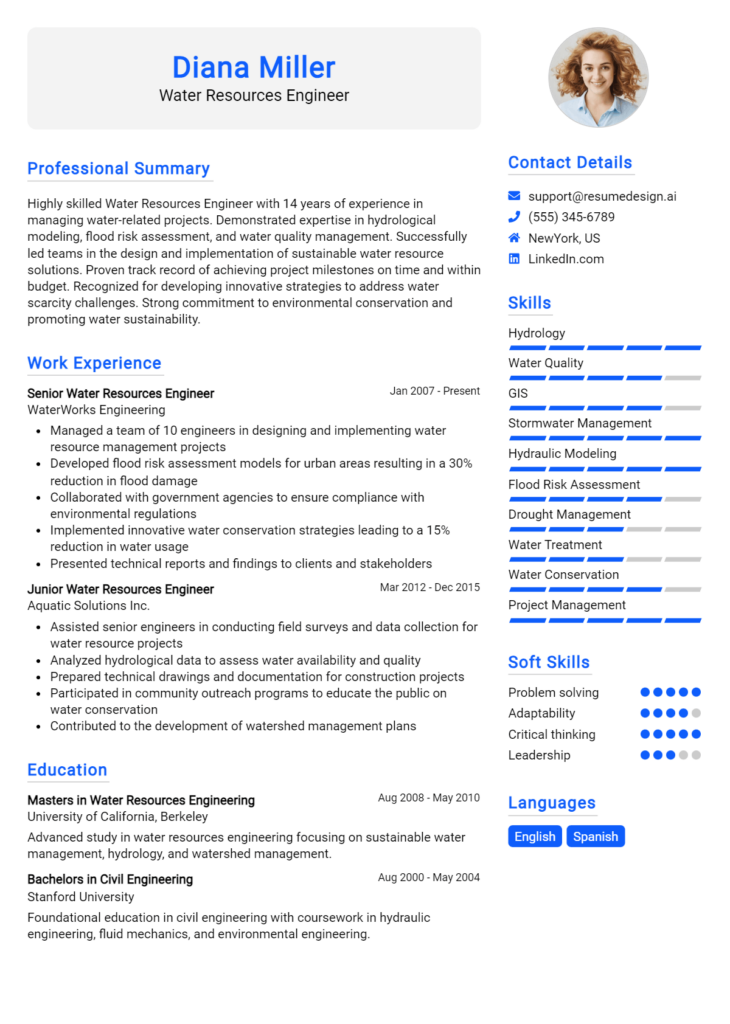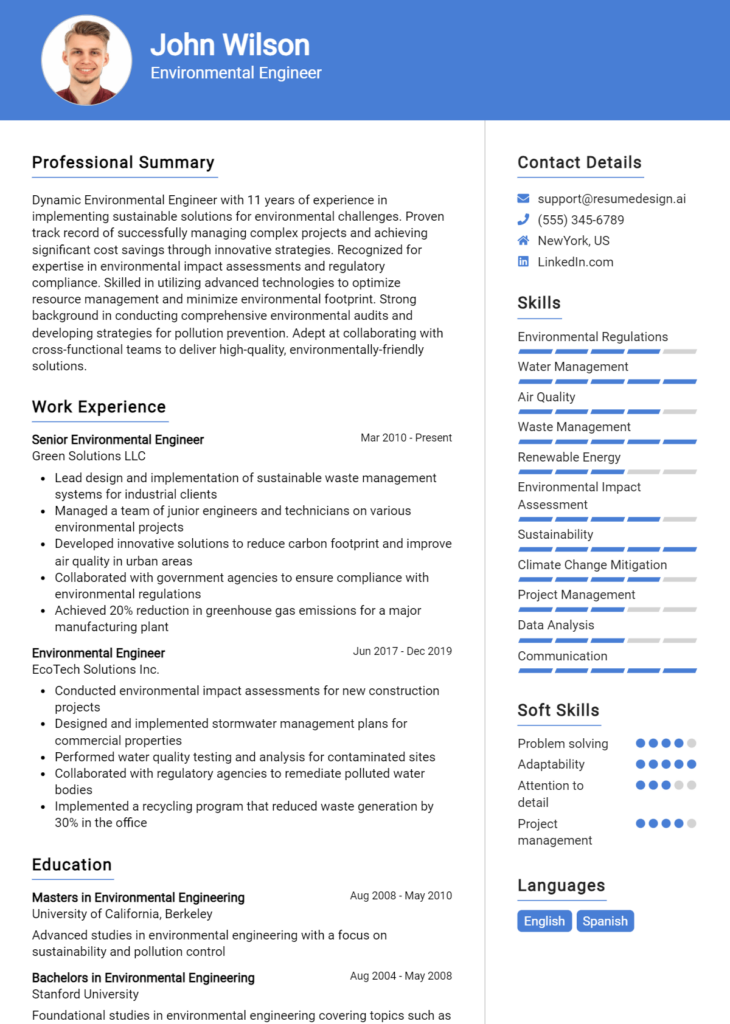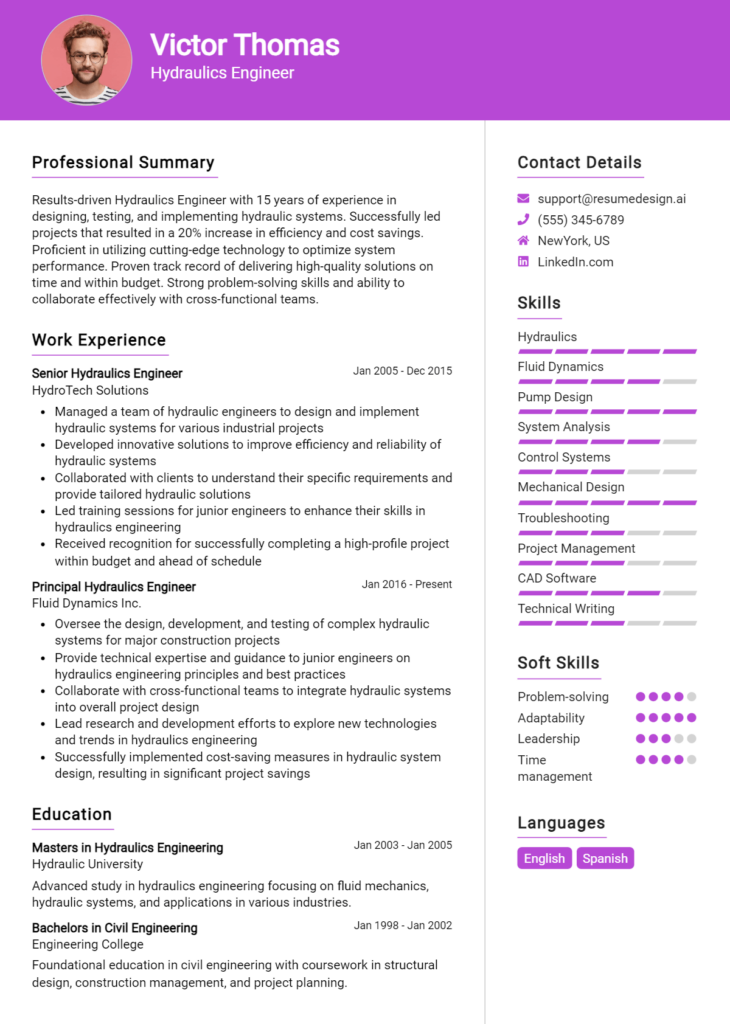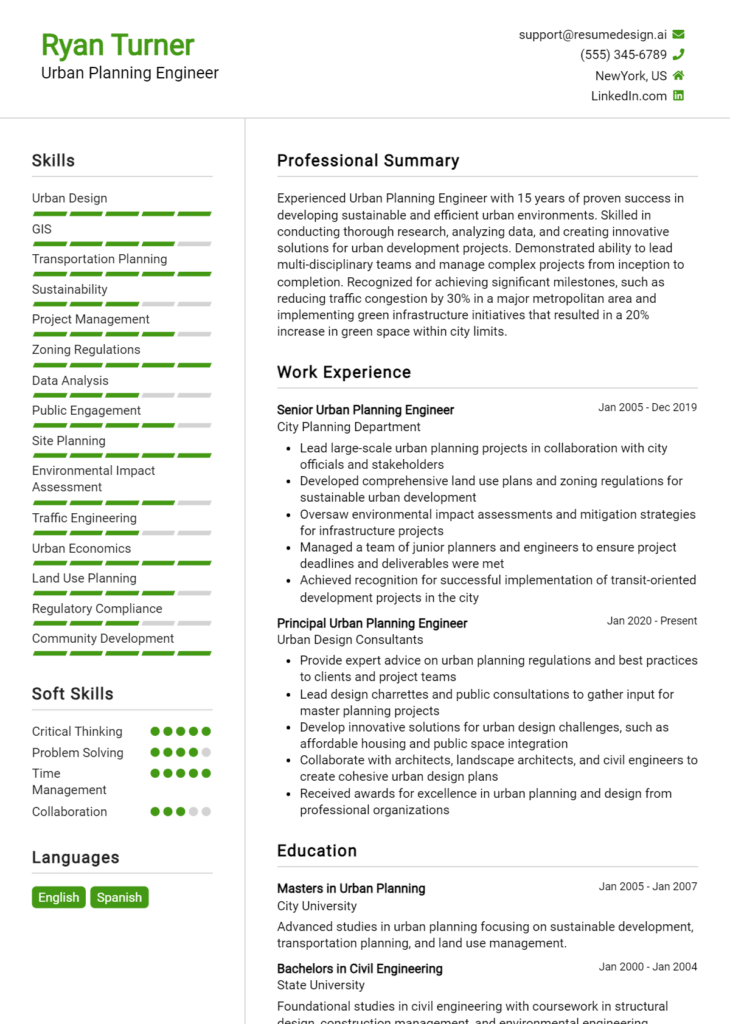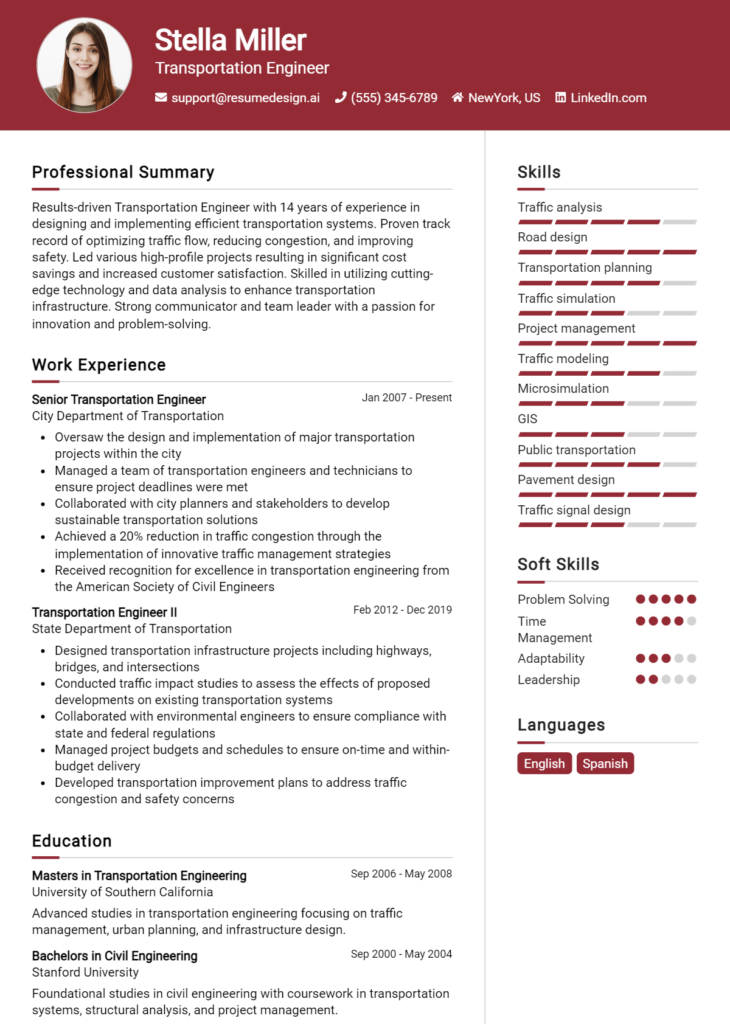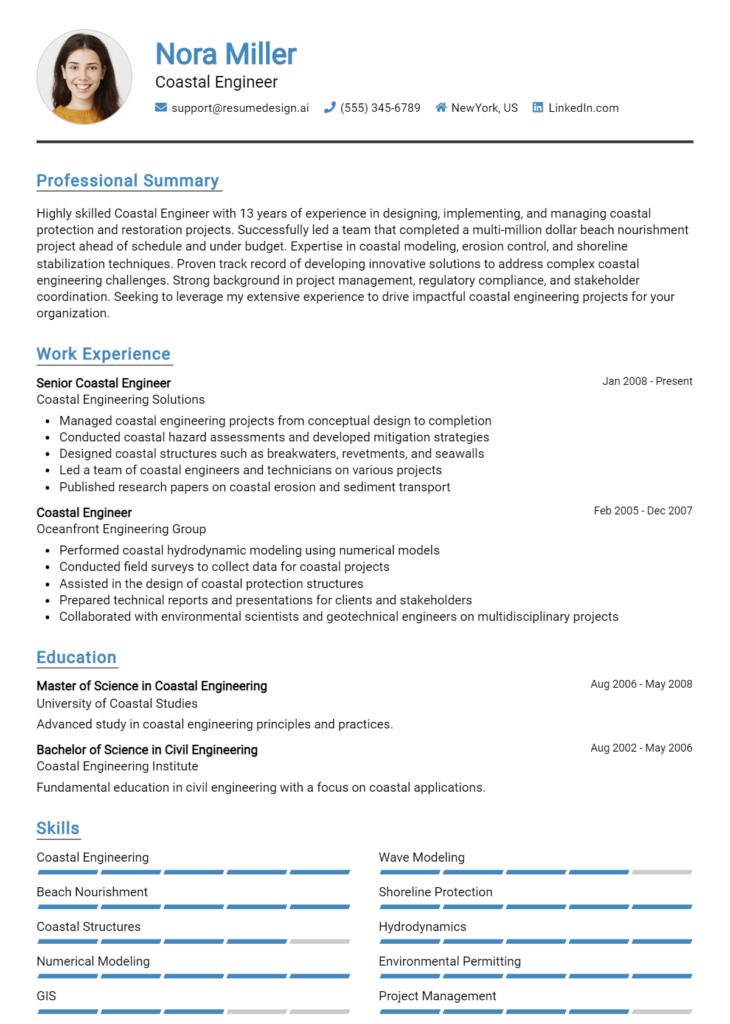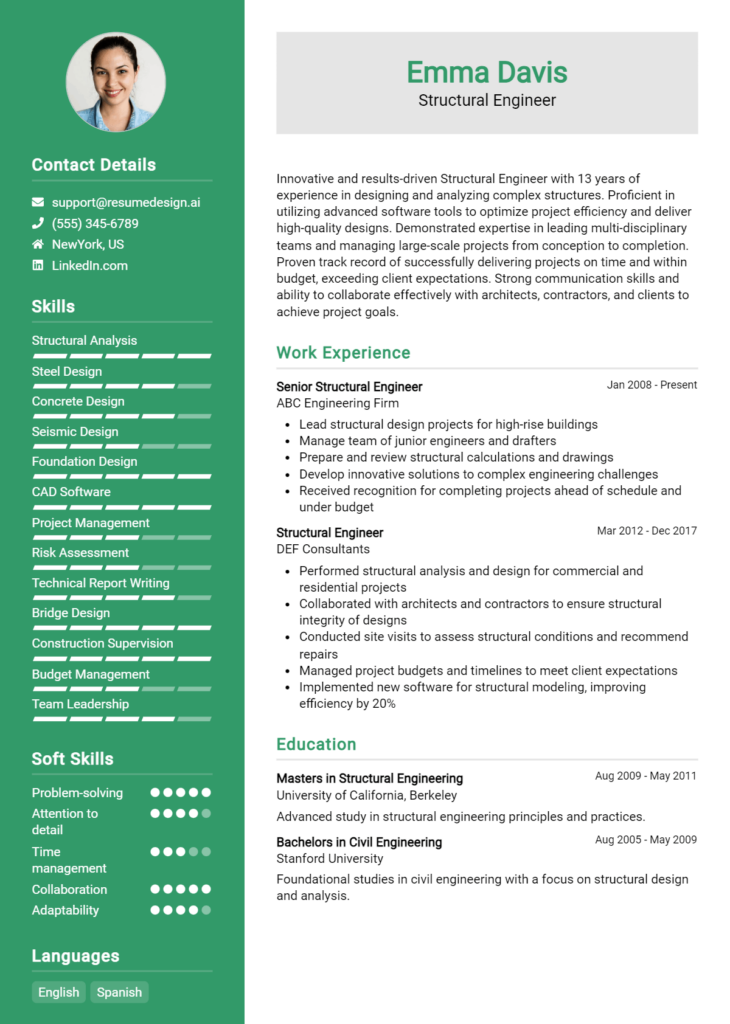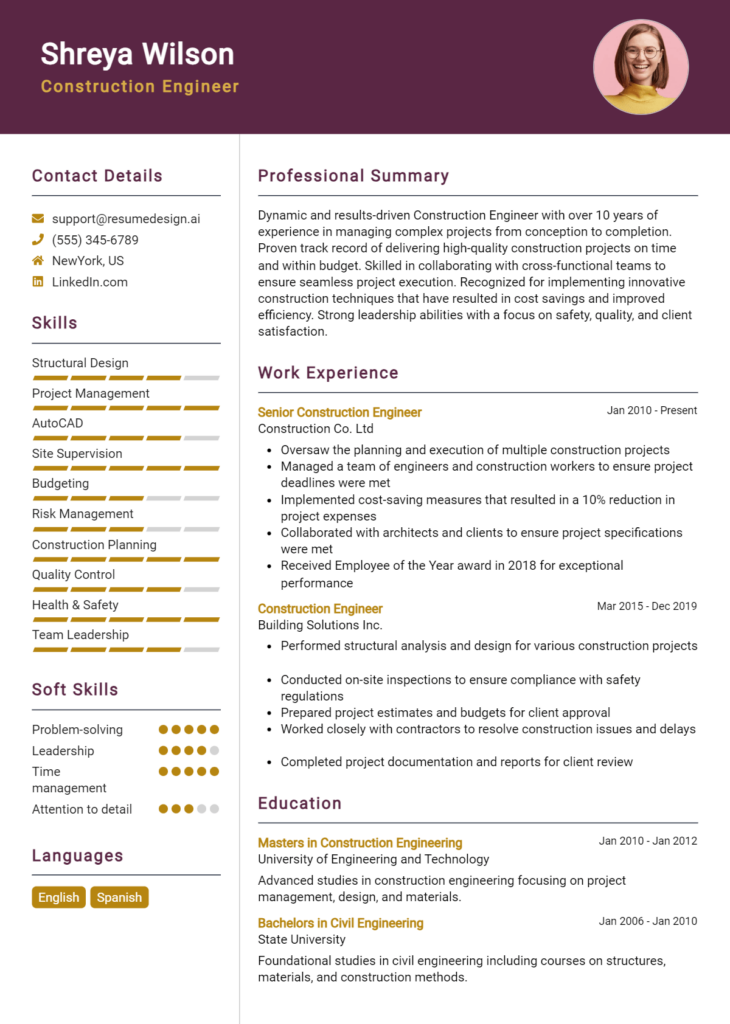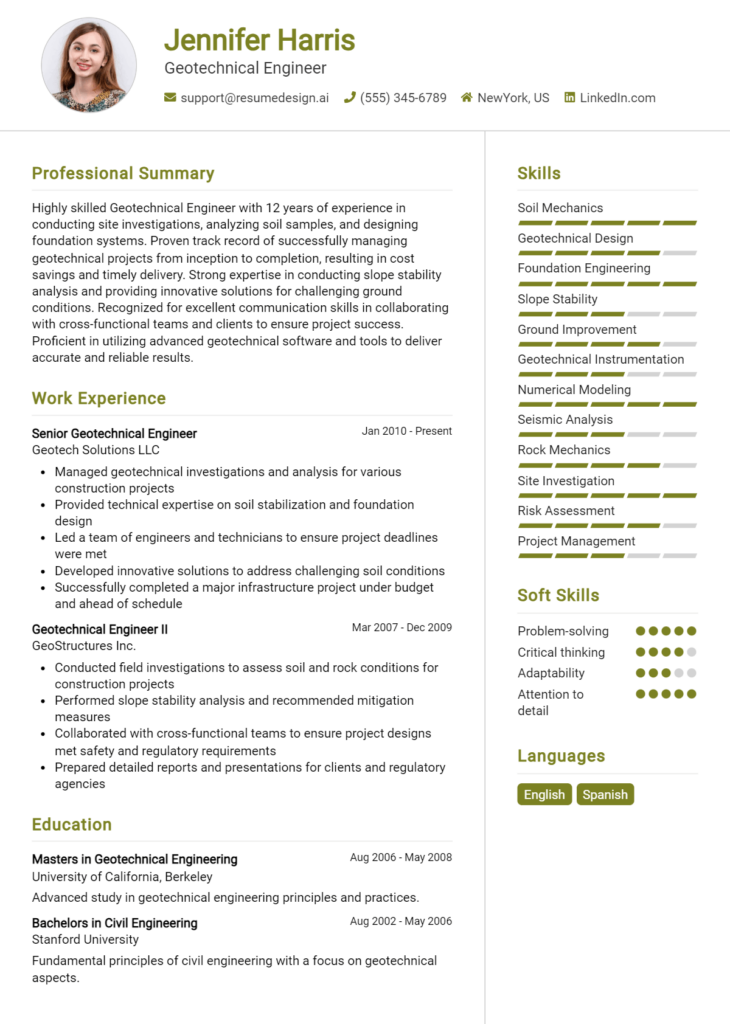Infrastructure Engineer Core Responsibilities
An Infrastructure Engineer plays a pivotal role in ensuring the seamless operation of an organization’s IT infrastructure. Key responsibilities include designing, implementing, and managing systems that support various business functions. This role requires strong technical skills in networking, cloud services, and server management, alongside operational acumen and problem-solving abilities. By collaborating with different departments, Infrastructure Engineers contribute to achieving organizational goals, making it essential to highlight these qualifications in a well-structured resume.
Common Responsibilities Listed on Infrastructure Engineer Resume
- Design and implement scalable and reliable infrastructure solutions.
- Monitor and maintain system performance and availability.
- Troubleshoot and resolve hardware and software issues.
- Manage cloud services and virtualization technologies.
- Collaborate with development and operations teams to ensure seamless integration.
- Implement security measures to protect infrastructure assets.
- Document infrastructure processes and configurations.
- Conduct regular system updates and maintenance tasks.
- Evaluate and recommend new technologies to improve efficiency.
- Provide technical support and guidance to other departments.
- Ensure compliance with industry standards and best practices.
High-Level Resume Tips for Infrastructure Engineer Professionals
In the competitive field of infrastructure engineering, a well-crafted resume serves as a critical tool for making a strong first impression on potential employers. Your resume is not just a list of past roles and responsibilities; it is an opportunity to showcase your unique skills, achievements, and the value you bring to a prospective employer. It needs to effectively reflect your technical proficiency, problem-solving abilities, and project successes. This guide will provide practical and actionable resume tips specifically tailored for Infrastructure Engineer professionals to help you stand out in a crowded job market.
Top Resume Tips for Infrastructure Engineer Professionals
- Tailor your resume to the specific job description, highlighting keywords and requirements that match your skills.
- Begin with a strong summary statement that encapsulates your expertise and career goals relevant to infrastructure engineering.
- Showcase relevant experience by detailing specific projects you've worked on, including your role and contributions.
- Quantify achievements where possible, using metrics to demonstrate the impact of your work (e.g., reduced downtime by 30%).
- Highlight industry-specific skills, such as cloud computing, network infrastructure, and virtualization technologies.
- Include relevant certifications and training that validate your expertise and commitment to professional development.
- Utilize action verbs to describe your contributions and accomplishments to convey a sense of proactivity and effectiveness.
- Keep the layout clean and professional, using consistent formatting, bullet points, and clear headings for easy readability.
- Incorporate technical skills and tools (e.g., AWS, Azure, Cisco) prominently to align with the job requirements.
- Proofread thoroughly to eliminate any typos or grammatical errors, as attention to detail is crucial in engineering roles.
By implementing these tips into your resume, you can significantly increase your chances of landing a job in the Infrastructure Engineer field. A well-structured and targeted resume not only highlights your qualifications but also demonstrates your professionalism and commitment to your career, making you a more attractive candidate to potential employers.
Why Resume Headlines & Titles are Important for Infrastructure Engineer
In the competitive field of infrastructure engineering, crafting an effective resume is crucial for standing out to potential employers. Resume headlines and titles play a vital role in this process, as they serve as the first impression a hiring manager has of a candidate. A strong headline can immediately capture attention and succinctly highlight a candidate's key qualifications and strengths in one impactful phrase. This concise encapsulation of experience and skills is essential, as it should be relevant and directly aligned with the specific job being applied for, ensuring that the candidate's expertise is communicated effectively from the outset.
Best Practices for Crafting Resume Headlines for Infrastructure Engineer
- Keep it concise: Aim for a headline that is clear and to the point, ideally under 10 words.
- Make it role-specific: Tailor the headline to reflect the specific position or area of expertise within infrastructure engineering.
- Highlight key skills: Include relevant skills that are in demand for the job you are seeking.
- Use impactful language: Choose strong action words and industry-specific terminology.
- Avoid jargon: Stay away from overly technical terms that might confuse non-technical hiring managers.
- Showcase achievements: If possible, incorporate quantifiable accomplishments that demonstrate your value.
- Be authentic: Ensure that your headline reflects your true experience and capabilities.
- Revise for clarity: Edit the headline to ensure it is free from ambiguity and clearly communicates your professional identity.
Example Resume Headlines for Infrastructure Engineer
Strong Resume Headlines
"Experienced Infrastructure Engineer Specializing in Cloud Solutions and Network Optimization"
“Results-Driven Infrastructure Engineer with 10+ Years in Systems Architecture and Security”
“Certified Infrastructure Engineer Focusing on Cost-Effective IT Infrastructure Design”
“Dynamic Infrastructure Engineer with Proven Track Record in Project Management and Delivery”
Weak Resume Headlines
“Engineer Looking for Opportunities”
“Infrastructure Professional with Various Skills”
“Seeking a Job in Engineering”
The strong headlines effectively convey the candidates' specific expertise, experience, and accomplishments, making them immediately relevant to hiring managers. They clearly communicate what the candidate brings to the table and align with the expectations of the infrastructure engineering role. In contrast, the weak headlines lack specificity and fail to showcase the candidate's strengths or qualifications, making them forgettable and less appealing to prospective employers. Strong headlines serve as a powerful tool for creating a lasting first impression, while weak ones may lead to missed opportunities.
Writing an Exceptional Infrastructure Engineer Resume Summary
A resume summary is a crucial component for an Infrastructure Engineer as it serves as the first impression for hiring managers. A well-crafted summary quickly captures attention by succinctly highlighting key skills, relevant experience, and notable accomplishments that align with the demands of the job. It acts as a powerful marketing tool, providing a snapshot of your professional brand and making a case for why you are the ideal candidate. To be effective, the summary should be concise, impactful, and specifically tailored to the position you are applying for, ensuring that you stand out in a competitive job market.
Best Practices for Writing a Infrastructure Engineer Resume Summary
- Quantify Achievements: Use numbers and metrics to showcase your impact, such as system uptime percentages or cost savings.
- Focus on Relevant Skills: Highlight technical skills that are directly applicable to the job, such as cloud computing, network architecture, or cybersecurity.
- Tailor for the Job Description: Customize your summary to reflect the specific requirements and keywords from the job posting.
- Keep it Concise: Aim for 2-4 sentences that clearly articulate your value without overwhelming the reader.
- Showcase Certifications: Include relevant certifications that demonstrate your qualifications and commitment to the field.
- Use Action Verbs: Start sentences with powerful verbs to convey your capabilities and achievements effectively.
- Highlight Problem-Solving Skills: Emphasize your ability to troubleshoot and resolve infrastructure-related issues efficiently.
- Demonstrate Leadership: If applicable, mention any leadership roles or experiences that showcase your ability to guide teams or projects.
Example Infrastructure Engineer Resume Summaries
Strong Resume Summaries
Detail-oriented Infrastructure Engineer with over 7 years of experience in optimizing network performance, achieving 99.9% uptime in a multi-site environment. Proven track record in implementing cloud solutions that reduced operational costs by 30% while enhancing system scalability.
Results-driven Infrastructure Engineer skilled in designing robust IT infrastructures. Successfully led a team to migrate a legacy system to AWS, completing the project 2 weeks ahead of schedule and reducing downtime by 40%.
Infrastructure Engineer with a passion for cybersecurity and a track record of improving network security protocols, resulting in a 50% reduction in security breaches over 2 years. Certified in AWS and Cisco networking.
Weak Resume Summaries
Infrastructure Engineer with experience in IT. Looking for a new opportunity to leverage my skills.
Experienced engineer seeking a position in infrastructure management. I have worked with various technologies and have a good understanding of systems.
The strong resume summaries stand out by providing specific details about achievements, quantifying results, and demonstrating direct relevance to the Infrastructure Engineer role. They effectively showcase the candidate's skills and experiences in a way that aligns with potential employer needs. Conversely, the weak summaries are vague and lack concrete details, failing to present measurable outcomes or a clear connection to the job, which diminishes their impact and effectiveness in catching a hiring manager's attention.
Work Experience Section for Infrastructure Engineer Resume
The work experience section of an Infrastructure Engineer resume is paramount in demonstrating a candidate's technical proficiency, leadership capabilities, and commitment to delivering high-quality infrastructure solutions. This section serves as a narrative of the candidate's career journey, showcasing how their hands-on experience aligns with the needs of potential employers. By quantifying achievements—such as successfully managing complex projects, improving system performance, or enhancing team productivity—candidates can illustrate their value in measurable terms. Aligning this experience with industry standards and best practices is crucial to stand out in a competitive job market.
Best Practices for Infrastructure Engineer Work Experience
- Highlight relevant technical skills and tools used in each role.
- Quantify achievements with specific metrics (e.g., uptime percentages, project completion times).
- Detail leadership roles and team management experiences.
- Focus on collaboration with cross-functional teams and stakeholders.
- Use action verbs to convey impact and initiative.
- Align your experiences with current industry trends and technologies.
- Tailor your work experience to match the job description of the position you are applying for.
- Incorporate keywords from the job postings to enhance visibility in applicant tracking systems.
Example Work Experiences for Infrastructure Engineer
Strong Experiences
- Led a team of 10 engineers in the successful migration of a legacy system to a cloud-based solution, resulting in a 40% reduction in operational costs.
- Designed and implemented a disaster recovery plan that improved recovery time objectives (RTO) by 60%, ensuring business continuity during outages.
- Collaborated with cross-functional teams to optimize network performance, achieving a 99.99% uptime across all services.
- Developed automated deployment scripts that decreased system provisioning time by 70%, enhancing overall productivity.
Weak Experiences
- Worked on various infrastructure projects.
- Assisted with system updates and maintenance.
- Participated in team meetings to discuss infrastructure issues.
- Helped with improving network performance.
The examples labeled as "strong" are characterized by their specificity and quantifiable results, clearly demonstrating the candidate's impact and leadership in previous roles. These statements provide concrete evidence of technical expertise and effective collaboration, making them impressive to prospective employers. In contrast, the "weak" experiences lack detail and measurable outcomes, failing to convey the candidate's contributions or the significance of their roles, which diminishes their overall impact on the resume.
Education and Certifications Section for Infrastructure Engineer Resume
The education and certifications section of an Infrastructure Engineer resume is crucial as it demonstrates the candidate's academic background and commitment to continuous learning in a rapidly evolving field. This section serves to highlight relevant degrees, industry-recognized certifications, and specialized training that validate the candidate's expertise and readiness for the challenges of the role. By providing detailed information about relevant coursework, certifications, and any ongoing professional development, candidates can significantly enhance their credibility and alignment with the specific requirements of the job, making them more appealing to potential employers.
Best Practices for Infrastructure Engineer Education and Certifications
- Prioritize education and certifications that are specifically relevant to infrastructure engineering.
- Include advanced degrees such as a Master's in Computer Science or Information Technology.
- Highlight industry-recognized certifications like AWS Certified Solutions Architect or Cisco Certified Network Professional (CCNP).
- Detail relevant coursework that demonstrates practical skills and knowledge applicable to infrastructure engineering.
- Showcase any specialized training in emerging technologies such as cloud computing or network security.
- Keep the section concise and focused, avoiding irrelevant or outdated qualifications.
- Use clear formatting to enhance readability and emphasize key credentials.
- Update the section regularly to reflect any new certifications or educational achievements.
Example Education and Certifications for Infrastructure Engineer
Strong Examples
- M.S. in Computer Engineering, University of Technology, 2022
- AWS Certified Solutions Architect – Associate, 2023
- CCNP Routing and Switching, Cisco, 2021
- Coursework in Cloud Computing, Network Architecture, and Cybersecurity from XYZ Online Academy
Weak Examples
- Bachelor's degree in History, University of Arts, 2018
- Certified Microsoft Office Specialist, 2019
- Old Cisco Certified Network Associate (CCNA) certification, expired 2020
- Coursework in Graphic Design, Community College, 2017
The strong examples listed above are considered relevant because they align directly with the skills and knowledge required for an Infrastructure Engineer position, showcasing both advanced education and current industry certifications. In contrast, the weak examples are deemed irrelevant or outdated as they do not pertain to infrastructure engineering or lack current validity, thus failing to strengthen the candidate's profile for this specific role.
Top Skills & Keywords for Infrastructure Engineer Resume
As an Infrastructure Engineer, showcasing the right skills on your resume is crucial for standing out in a competitive job market. Employers are looking for candidates who not only possess technical expertise but also demonstrate strong interpersonal and problem-solving abilities. A well-crafted resume that highlights both hard and soft skills can effectively communicate your qualifications and readiness for the role. Focusing on relevant skills allows you to better align your experience with the expectations of potential employers, making it easier for them to see your value and fit within their organization.
Top Hard & Soft Skills for Infrastructure Engineer
Soft Skills
- Problem-solving
- Communication
- Teamwork
- Adaptability
- Time management
- Attention to detail
- Critical thinking
- Creativity
- Leadership
- Conflict resolution
- Customer service orientation
- Decision-making
- Collaboration
- Analytical thinking
Hard Skills
- Cloud computing (AWS, Azure, GCP)
- Networking protocols (TCP/IP, DNS, DHCP)
- System architecture design
- Virtualization technologies (VMware, Hyper-V)
- Infrastructure as Code (IaC) tools (Terraform, Ansible)
- Backup and recovery solutions
- Security best practices and compliance
- Scripting languages (Python, Bash)
- Database management (SQL, NoSQL)
- Operating systems (Linux, Windows)
- Monitoring and performance tuning
- Configuration management tools (Puppet, Chef)
- DevOps methodologies
- Load balancing and failover strategies
By emphasizing both soft and hard skills on your resume, you can provide a comprehensive picture of your capabilities and experiences, making it easier for employers to assess your fit for the Infrastructure Engineer position. Additionally, don't forget to highlight your work experience to complement these skills, showcasing how you've effectively applied them in real-world scenarios.
Stand Out with a Winning Infrastructure Engineer Cover Letter
I am writing to express my interest in the Infrastructure Engineer position at [Company Name], as advertised on [where you found the job listing]. With a solid foundation in designing, implementing, and managing complex infrastructure systems, I am confident in my ability to contribute to your team and help drive [Company Name]’s technological initiatives forward. My experience in both cloud and on-premises environments, combined with my dedication to optimizing system performance, aligns well with the requirements outlined in the job description.
In my previous role at [Previous Company Name], I successfully led several infrastructure projects that improved system efficiency by over 30%. My responsibilities included assessing system requirements, implementing virtualization solutions, and enhancing network security protocols. I collaborated closely with cross-functional teams to ensure seamless integration of new technologies, which significantly reduced downtime and improved user satisfaction. My expertise in tools such as AWS, Azure, and various CI/CD pipelines enables me to deliver innovative solutions that align with modern infrastructure demands.
I am particularly excited about the opportunity at [Company Name] because of your commitment to leveraging cutting-edge technologies to enhance operational capabilities. I am eager to bring my skills in automation and infrastructure as code to your organization, enabling rapid deployment and scalability of resources. Additionally, my proactive approach to troubleshooting and problem-solving allows me to quickly identify and resolve issues, minimizing disruption and maintaining optimal performance levels.
Thank you for considering my application. I look forward to the possibility of contributing to [Company Name] as an Infrastructure Engineer and am eager to discuss how my background, skills, and enthusiasms can be aligned with the goals of your team. Please feel free to contact me at [Your Phone Number] or [Your Email] to schedule a conversation.
Common Mistakes to Avoid in a Infrastructure Engineer Resume
When crafting a resume for an Infrastructure Engineer position, many candidates often overlook critical elements that can significantly impact their chances of landing an interview. A well-structured resume should effectively highlight relevant skills, experiences, and accomplishments. However, common mistakes can detract from the overall presentation and content. Below are some pitfalls to avoid when writing your Infrastructure Engineer resume:
Vague Job Descriptions: Failing to provide specific details about previous job responsibilities can make it difficult for employers to gauge your expertise. Use quantifiable achievements to demonstrate your impact in past roles.
Ignoring Keywords: Many companies utilize Applicant Tracking Systems (ATS) to filter resumes. Neglecting to incorporate relevant industry keywords can result in your resume being overlooked. Review job descriptions for key terms and integrate them naturally into your resume.
Overloading with Technical Jargon: While it's essential to showcase technical skills, excessive jargon can alienate hiring managers who may not be familiar with every term. Aim for a balance that conveys your expertise while remaining accessible.
Lack of Tailoring: Sending out a generic resume can diminish your chances of success. Tailor your resume for each application by highlighting the most relevant experiences and skills that align with the specific job requirements.
Omitting Soft Skills: Infrastructure Engineers often collaborate with various teams, so soft skills like communication, problem-solving, and teamwork should not be overlooked. Highlight these qualities alongside your technical abilities.
Poor Formatting and Layout: A cluttered or unprofessional layout can detract from your qualifications. Use clear headings, bullet points, and consistent formatting to enhance readability and present a polished appearance.
Neglecting Continuous Learning: The tech industry is ever-evolving, and failing to mention ongoing education, certifications, or training can suggest stagnation. Include any relevant courses or certifications to demonstrate your commitment to professional development.
Not Including Relevant Projects: Failing to showcase significant projects you've worked on can be a missed opportunity. Include a section that highlights notable projects, detailing your role, the technologies used, and the outcomes achieved.
By avoiding these common mistakes, you can create a more compelling resume that effectively showcases your qualifications and increases your chances of standing out to potential employers in the competitive field of infrastructure engineering.
Conclusion
As we explored the multifaceted role of an Infrastructure Engineer, it became clear that this position requires a blend of technical expertise, problem-solving skills, and a deep understanding of system architecture. Key responsibilities include managing and maintaining IT infrastructure, ensuring system reliability, and implementing security measures to protect data integrity. Additionally, the importance of continuous learning and adaptation to new technologies was emphasized, given the rapid pace of change in the tech landscape.
To excel in this role, showcasing relevant skills and experiences on your resume is crucial. Your resume should highlight your familiarity with cloud services, virtualization, and network management, as well as your ability to troubleshoot and optimize infrastructure systems.
As you reflect on the insights shared in this article, we encourage you to take the next step in your career journey. Review and refine your Infrastructure Engineer resume to ensure it effectively represents your qualifications and achievements. To assist you in this process, consider utilizing the following resources:
- Resume Templates to find a layout that suits your style.
- Resume Builder for a streamlined approach to crafting your resume.
- Resume Examples for inspiration and guidance on what works.
- Cover Letter Templates to complement your resume with a strong introduction.
Take action today and ensure your resume stands out in the competitive job market for Infrastructure Engineers!

